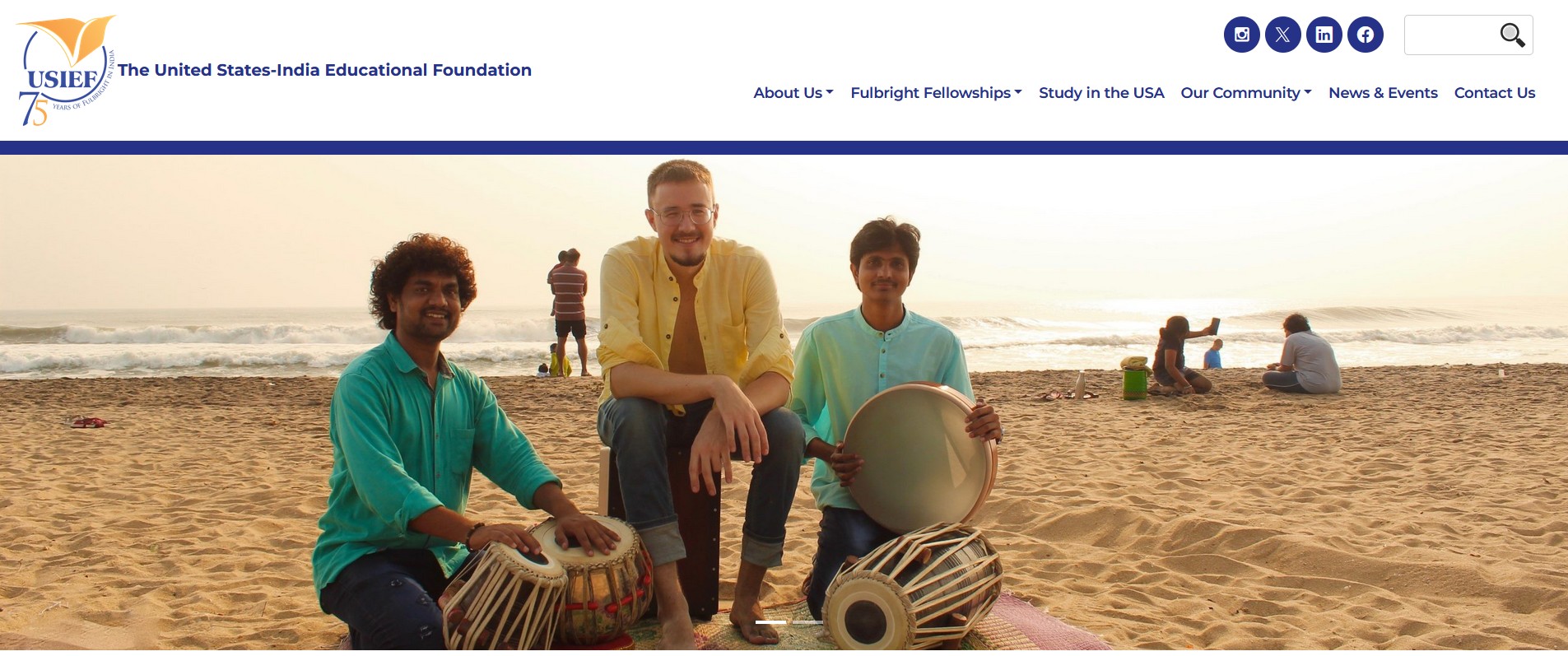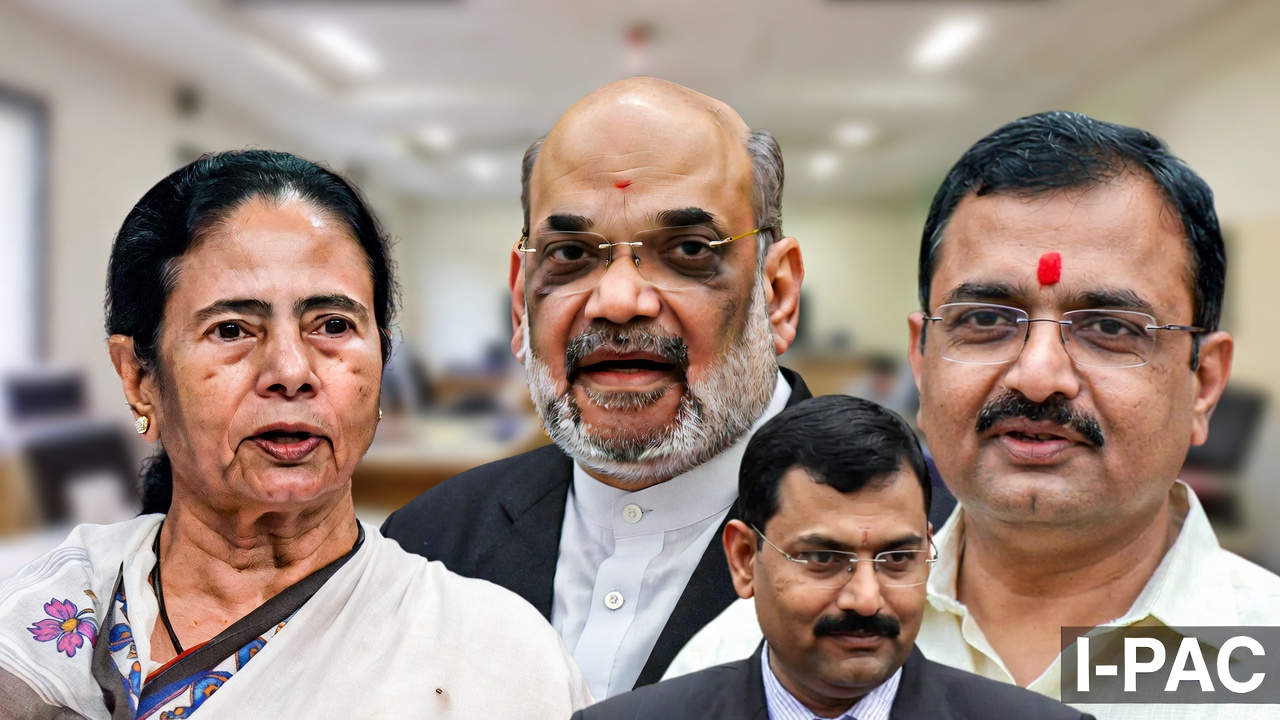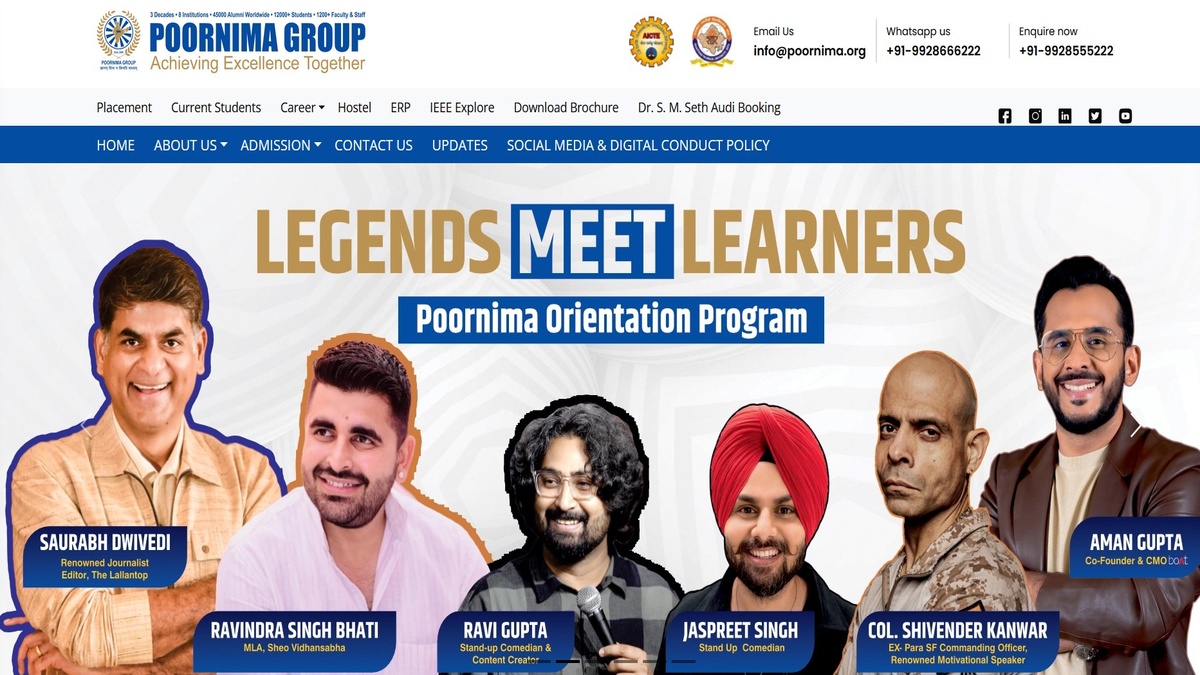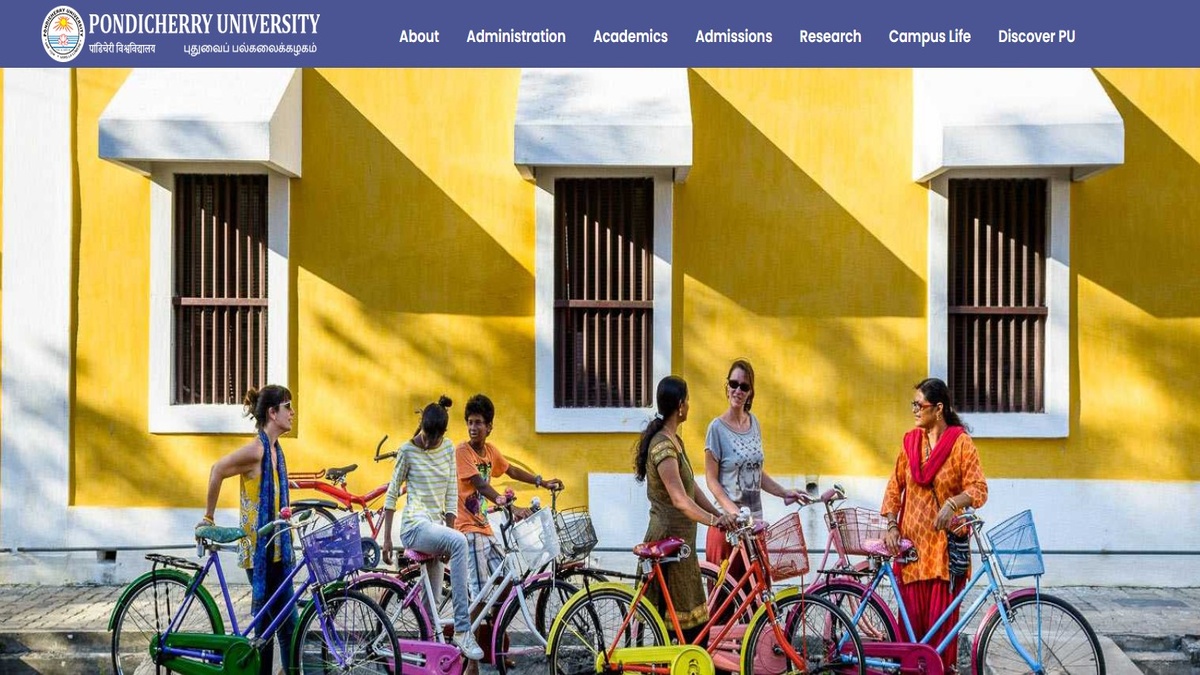2026-27 Fullbright-Nehru and other Fullbright Fellowships for Indian Citizens announced: United States-India Educational Foundation (USIEF)


1. Fullbright-Nehru Master’s Fellowships
The Fulbright-Nehru Master’s Fellowships are designed for highly motivated individuals who demonstrate outstanding leadership qualities, have completed the equivalent of a U.S. bachelor’s degree, have at least three years professional work experience, and are committed to return and contribute to their communities in India.
These fellowships are awarded for up to two years to pursue a master’s degree at U.S. colleges and universities.
Application Deadline: May 14, 2025, 23:59:59 hrs (IST)
2. Fulbright-Nehru Doctoral Research Fellowships
The Fulbright-Nehru Doctoral Research Fellowships are designed to build long-term capacity to address global challenges and develop innovative solutions in key priority areas in both India and the U.S. Selected scholars will have the opportunity to conduct research, audit non-degree courses at U.S. academic institutions to enhance their knowledge and gain practical work experience in suitable settings in the U.S.
These fellowships are designed for Indian scholars who are registered for a Ph.D. at an Indian institution. These fellowships are for six to nine months.
Application Deadline: July 15, 2025, 23:59:59 hrs (IST)
3. Fulbright-Nehru Postdoctoral Research Fellowships
The Postdoctoral Research Fellowships are designed for early-career faculty and researchers in India, offering an opportunity to enhance their research capabilities. Postdoctoral fellows will have access to some of the finest resources in their areas of interest and will help build long-term collaborative relationships with U.S. faculty and institutions. These fellowships are for eight to 12 months.
Application Deadline: July 15, 2025, 23:59:59 hrs (IST)
4. Fulbright-Nehru Academic and Professional Excellence Fellowships
The Fulbright-Nehru Academic and Professional Excellence Fellowships are designed to provide Indian faculty, researchers, and professionals with the opportunity to teach, conduct research, or engage in a combination of both research and teaching at U.S. institutions. Depending on the specific host institution, grantees may contribute to the academic environment by developing curriculum, as well as conducting workshops and seminars. These fellowships are for four to nine months.
Application Deadline: July 1, 2025, 23:59:59 hrs (IST)
5. Hubert H. Humphrey Fellowship Program
The Hubert H. Humphrey Fellowship Program is a prestigious Fulbright program designed to bring accomplished young and mid-career professionals from developing countries to the United States for ten months of non-degree graduate study and related professional experience. Established in 1978 to honour the legacy of Senator and Vice President Hubert H. Humphrey, the program aims to foster leadership and collaboration in addressing global challenges.
The program is designed to meet the requirements of policymakers, planners, administrators, and managers in the government, public and private sectors, and non-governmental organizations, who have a public service commitment, demonstrated leadership potential, and commitment to their own country’s development.
Application Deadline: *Please note that the Call for applications for 2026-27 will be announced in April 2025.
6. Fulbright Scholar-in-Residence Program
The Fulbright Scholar-in-Residence (SIR) Program brings scholars and professionals from other countries to lecture at U.S. colleges and universities that do not often host visiting scholars. Under this program, interested U.S. institutions submit proposals to invite scholars for one or both terms of the academic year to teach courses in area studies, in inter-disciplinary programs that focus on global issues, or in courses where participation of the foreign scholar can provide a cross-cultural or international perspective.
7. Fulbright Specialist Program for Indian Institutions
The Fulbright Specialist Program provides an opportunity for Indian universities and institutions of higher learning to draw on the expertise of U.S. scholars and professionals and develop linkages with American institutions. Specialist grants focus on strengthening and supporting the development needs of institutions and broadening institutional cooperation. Fulbright Specialists work in their areas of expertise as they enhance their understanding of the cultural and educational contexts of the host country through engagement with the host community.
Application Deadline: Last date of submission of application on the portal is May 31, 2025
8. Fulbright Foreign Language Teaching Assistant (FLTA) Program
The Fulbright FLTA Program, an integral part of the Fulbright Student Program, funded by the U.S. Department of State, is a nine-month, non-degree program for early career English teachers (not more than seven years of teaching experience) teaching at college level or professionals in related fields. The program invites applications from early career English teachers teaching at college level or training to become a teacher of English, or a young professional in related fields (e.g., American Studies, American/English Literature, etc.). Selected FLTAs from India will teach Hindi and/or Urdu at select U.S. campuses during their nine-month grant beginning August/September each year.
Fulbright FLTA participants have the opportunity to refine their teaching skills, increase their English language proficiency and extend their knowledge of the society and culture of the United States, while being teaching assistants for their native language to U.S. students and strengthening foreign language instruction at U.S. colleges and universities. The participants also interact with their host communities in conversation groups, extracurricular activities, and community outreach projects.
The FLTA program promotes cross-cultural understanding in the U.S. and in the home countries of the FLTA fellows. U.S. universities benefit from the presence of a native speaker on their campuses. FLTA fellows provide teaching assistance, by serving in various capacities, which may include teaching up to two classes per semester, and typically facilitate cultural events, language clubs and language tables. FLTA fellows are required to enroll in at least two courses per semester, one of which must be in U.S. Studies. As a result of the program, FLTA alumni return with a high proficiency in English and can speak with authenticity and authority about the United States, its values and its people.
Application Deadline: Call for Applications for 2026-2027 academic year is currently not open.
9. Fulbright Teaching Excellence and Achievement Program
Call for 2026-27 is now closed ( Application Deadline: March 07, 2025 )
The Fulbright Teaching Excellence and Achievement Program (FTEA) is sponsored by the Bureau of Educational and Cultural Affairs, U.S. Department of State. It is part of the overall Fulbright Program, named in honor of Senator J. William Fulbright, which promotes mutual understanding among people of the United States and other countries. The Fulbright TEA Program will provide approximately 180 secondary school teachers from 75 countries with a unique opportunity to develop greater expertise in their subject areas, enhance their teaching skills, and increase their knowledge about the United States. The Fulbright TEA program is a six-week non-degree, non-credit academic program at a U.S. University. The international participants will travel to the United States for one of the two six-week professional development programs, either in January 2026 or September 2026. The timing of the program is subject to change, depending on the conditions in the host communities.
Fulbright TEA provides general academic seminars focusing on new teaching methodologies, student-centered learning, content-based instruction, lesson planning, and instructional technology training for teachers. Intensive English language instruction will be offered to teachers who need additional practice. The program will also include a practicum of at least 40 hours with a U.S. partner teacher in a secondary school near the host university to actively engage participants in the U.S. classroom environment. Cultural enrichment, mentoring, and support will be provided to participants throughout the program. The program will provide participants with practical resources they can use in their teaching, as well as skills to train trainers. Up to six teachers from India will participate in this program.
After returning home, teachers who successfully complete the program will be eligible to compete for small grants awards for essential teaching materials, follow-on training for other teachers, collaborative projects between participating American schools and their home schools, and other activities that build on the exchange experience.
10. Fulbright Distinguished Awards in Teaching Program for International Teachers
Call for 2026-27 is now closed ( Application Deadline: March 26, 2025 )
The Fulbright Distinguished Awards in Teaching Program for International Teachers (Fulbright DAI) is sponsored by the Bureau of Educational and Cultural Affairs, U.S. Department of State. It is part of the overall Fulbright Program, named in honor of Senator J. William Fulbright, which promotes mutual understanding among people of the United States and other countries. The program will bring approximately 40 international teachers to the U.S. for a semester. For international teachers, the program is open to teachers from Bangladesh, Botswana, Brazil, Finland, Greece, India, Indonesia, Israel, Mexico, Morocco, New Zealand, Philippines, Senegal, Singapore, Taiwan, Uganda, and United Kingdom. Up to four teachers from India will participate in the program.
Fulbright DAI is a semester-long non-degree, non-credit, professional development program at a U.S. university. Selected international participants will be placed at a U.S. host university School of Education from August 2026 to December 2026. The program will provide with a unique opportunity to develop greater expertise in their subject areas, enhance their teaching skills, increase their knowledge about the United States, and complete an individual or group project. Participants will audit courses in the host university’s school or department of education, and thus will be part of the university community. The program will include opportunities to observe and co-teach with U.S. teachers in a U.S. school near the host university, to actively engage participants in the U.S. classroom environment. Cultural enrichment, mentoring, and support will be provided throughout the program.
After returning home, teachers who successfully complete the program will be eligible to compete for small grants awards for essential teaching materials, to offer follow-on training for other teachers, collaborative projects between participating American schools, and other activities that build on the exchange experience.
USIEF Offices




Selection and Review Process
USIEF follows a multi-tier selection process for all fellowships. After the application deadline, no applications will be accepted. The submitted applications move through the following stages of the selection process:
- Technical Review: USIEF staff screen all the applications for eligibility and completeness before sending them to the reviewers/screening committees. Application that are deemed ineligible or do not meet the award requirements are not moved forward in the review process. Only complete applications (including all the required documents ) received by the deadline are considered in the review process. USIEF has created a checklist to ensure the applicants do not miss any mandatory documents.
- Screening/Review Committees: Technically eligible applications are reviewed by subject experts. Reviewers include academicians and professionals from both U.S. and India who have discipline or field-specific experience. The committee/reviewers read and rate applications and make recommendations for further consideration.
- National Selection Committee: Applicants who are short-listed in the review process are then invited for virtual interviews. Based on the fellowships available and priorities, final recommended list is drawn.
Screening/selection committees will generally use the following criteria to evaluate applications:
- Academic credentials and professional ability
- Merit of the proposed Fulbright project
- Communication skills
- Commitment to community or national service
- Need to conduct research in the U.S. and relevance to the Indian context
- Outcomes, Potential Impact and Benefits
- Motivation, Seriousness of Purpose, Maturity, Leadership, Cultural Adaptability
- Ability to contribute as a cultural ambassador beyond his/her specific field of study
Fulbright Foreign Scholarship Board (FFSB): All final shortlisted applications are forwarded to FSSB for final approvals
Note: It is the policy of the Fulbright Foreign Scholarship Board that reasons for non-recommendation and non-selection of applications are not given. Decisions taken by the reviewers/committees in connection with the selection process will be final and requests for reconsideration will NOT be entertained.
USIEF organizes mentoring workshops for potential Fulbright applicants, offering guidance on how to create a strong application. These workshops cover key elements of the application process and provide valuable insights to enhance your submission.
For more information on upcoming workshops in your region, please contact your local USIEF office.
FAQs – Fellowships for Indian Citizens
What are the opening and closing dates for applications?
Please check the website for the current dates for applications. The call for applications opens in February every year. Please check individual deadlines for programs to confirm closing dates. We do not accept any applications outside the announcement cycle.
How many letters of reference/recommendation do I need to submit?
Depending on the grant category, applicants are advised to request two to three referees to complete the letters of reference online by the application due date. Please read the applicant instructions for details.
Who should I ask to provide a Reference/recommendation?
Applicants should ask people who will best support their application and who can objectively assess their ability to successfully undertake a program of research or study in the U.S. and their potential to contribute to the U.S. and India relationship. Where possible the referees should include academic supervisor/s, colleagues and key contacts who can provide relevant information on the applicant’s personal and professional attributes.
If I am employed, do I need my employer’s approval as part of my application?
If you are employed, you are required to route your application through the proper channel. Your application will be considered ineligible without the employer’s endorsement/Letter of Support from Home Institution. The employer must indicate that leave will be granted for the fellowship period. Please obtain the endorsement in the specified format from the appropriate administrative authority. Postdoc candidates working under government-funded projects are required to get an endorsement from their affiliating institutions in India.
For the Fulbright-Nehru Doctoral, Postdoctoral, Academic and Professional Excellence Fellowships, does it help to establish contact with potential U.S. host institutions at the time of application? Is it mandatory?
You will be affiliated to only one U.S. host institution for the entire duration of your grant. USIEF strongly recommends applicants to identify institutions with which they wish to be affiliated and to correspond, in advance, with potential host institutions. If you have secured a letter of invitation from a U.S. institution, please include it as a part of your application. It is not mandatory but highly preferred.
How long does the review process take?
The review process takes three to four months after the application deadline. For the timeline and placement process, please visit the grant specific webpages on our website.
If selected, when can I begin my fellowship in the U.S.?
For the 2026-2027 cycle, most Fulbright fellows will begin their grants in August/September 2026. Depending upon the fellowship category, some fellows could begin in January 2027. 2026-2027 Fulbright-Nehru fellows for non-degree programs have to come into grant status no later than March 31, 2027.
What does the selection process involve?
Subject experts review all eligible applications. Applicants recommended by the subject experts will be required to appear for an interview with the USIEF National Selection Committee. Shortlisted candidates are notified at least three weeks prior to the interview date. Depending on the grant category, the national selection committees meet between August and December.
Fulbright-Nehru selection panels will generally use the following criteria to evaluate applications:
- Academic credentials and professional ability
- Merit of the proposed Fulbright project
- Communication skills
- Commitment to the community or national service
- Need to conduct research in the U.S.
- Outcomes, Potential Impact and Benefits
- Motivation, Seriousness of Purpose, Maturity, Leadership, Cultural Adaptability
- Ability to contribute as a cultural ambassador beyond the specific field of study
The national selection committees recommend a slate of nominees for further consideration of the Fulbright Foreign Scholarship Board (FFSB) in Washington, D.C. Nominees are notified of the outcome typically in March/April.
Will the Fulbright Commission staff review my application before submitting?
No. Please note that Fulbright staff are unable to access your application prior to submission.
How can I ensure my application is successful?
The Fulbright application process emphasizes the individuality of each applicant, and there is no universal “formula” for success. Each application should reflect the applicant’s unique background, experiences, and goals, while highlighting how the time in the program will be used effectively. Applicants must demonstrate how their proposed project aligns with the aims of the Fulbright program and how their work may contribute.
Can you tell me why I was not selected?
Unfortunately, we cannot provide individual feedback to applicants. As with all Fulbright awards, applications are evaluated by expert panels. The assessment is competitive, merit-based and in accordance with the Fulbright Foreign Scholarship Board (FFSB) policies.
Are Fulbright-Nehru and other Fulbright grants available for attending conferences, seminars and paper presentations in the U.S. and other countries?
Fulbright-Nehru and other Fulbright grants are not for the principal purpose of attending seminars and conferences or for presenting papers.
Who is eligible to apply for the Fulbright-Nehru and other Fulbright Fellowships?
Please see the eligibility criteria listed with respect to each grant category in addition to the General Prerequisites.
Can I avail of a Fulbright-Nehru for a project that I want to work on in India?
No. These grants are offered for study, research, teaching or professional development in the U.S.
What is the duration of the grants?
It can range from six weeks to two academic years depending on the grant category. See individual grant descriptions on our website.
Is there a preferred age for each fellowship category?
Fellowship categories do not have age limits/age preferences.
I had applied for a Fulbright-Nehru in the past but did not make it. Can I apply again?
Yes, you are strongly encouraged to apply again. Please review the eligibility criteria carefully. In a given academic year, you are eligible to apply for only one Fulbright-Nehru Fellowship. In the same academic year.
Where can I get information on Indian Fulbright fellows?
Please visit the “Current Fellows” page on USIEF website to learn about our fellows currently in the U.S. and their Fulbright projects.
Can I have multiple U.S. host institutions?
In the interests of maintaining a consistent, coherent program of research/study, applicants are strongly encouraged to propose to work with no more than one host institution in the United States. This is to ensure that program participants have sufficient time to develop ties to their host institutions and communities, an integral part of the cultural and academic exchange component of Fulbright. Short visits (up to 1 week) to other institutions are acceptable exceptions to this.
I have already started a degree in the U.S. Can I apply for a Fulbright scholarship to fund this?
Applicants who have already commenced studies/research in the U.S. are ineligible for a Fulbright scholarship. Applicants may already have an acceptance to a degree program in the U.S. but must not have enrolled or begun the coursework.
Must I return to India at the completion of my Fulbright program?
Fulbright scholars travel on a J-1 visa. You (and your J-2 dependents, where applicable) are subject to the Code of Federal Regulations rule 212(e), the two-year home country residency requirement associated with the J visa. This is intended to ensure that scholars fulfill the exchange nature of the program


